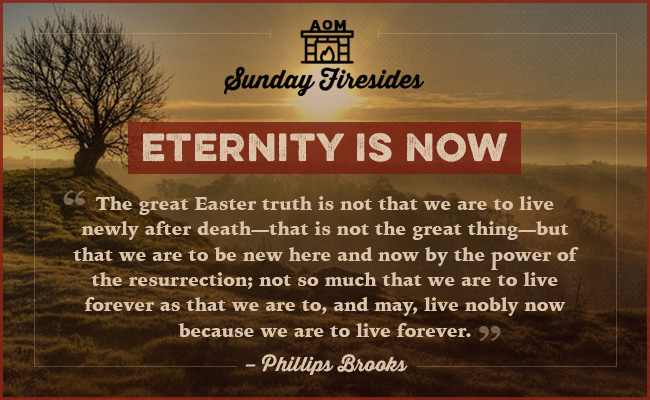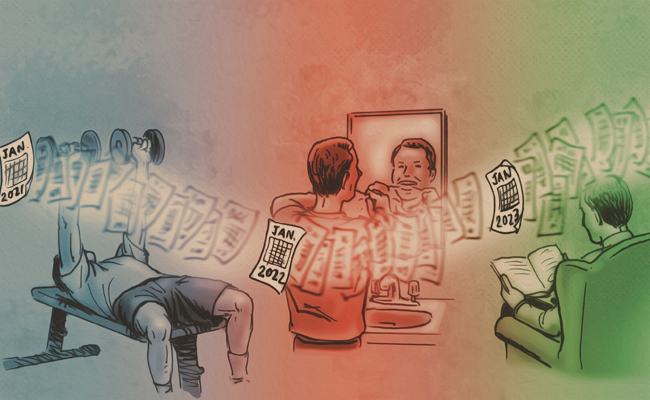The above quote by a 19th century clergyman speaks to the way a belief in eternal life can elevate and empower mortal life, offering strength, purpose, and a sense of divinely imbued identity and destiny.
Brooks speaks from a Christian tradition, but his viewpoint is, ironically enough, quite Nietzschean.
One of the fundamentals of Friedrich Nietzsche’s philosophy was the idea of “eternal return,” in which he charged people to imagine living the entirety of their lives, just as they are living them now, over and over again for eternity. He believed that if you thought you’d have to relive every decision and mood an infinite number of times, you would take every single moment of your life more seriously. You would say “yes to life.” You would realize that “Being begins in every Now.”
The linear finitude of death, Friedrich Nietzsche thought, was something of a cop-out, and he criticized Christians for attempting to escape the weight of the irreversible moment of the present by looking to the future — by contemplating their mansions in heaven. But there is nothing inherent to the faith’s theology that necessitates this “life-denying” attitude; in fact, if eternity extends forward and back to infinity, then there is no waiting for eternal life; you are living it right now. As St. Augustine said, “Your today is eternity.”
Regardless of one’s religion or philosophy, whether one approaches the issue from Nietzsche’s perspective or the Bible’s or another, every person could benefit from adopting this conviction, and using it to live more fully, more bravely, more nobly: eternity is now.








